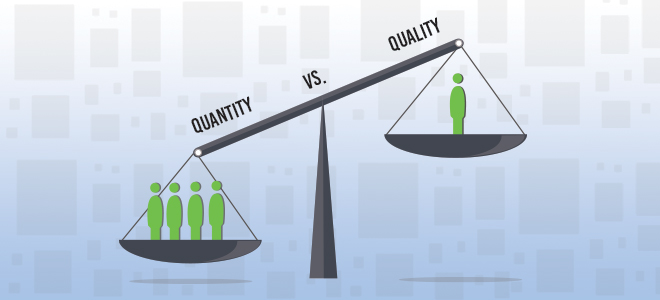Marketers agree: Effective lead management is critical to unlocking revenue growth potential. According to MarketingSherpa, 57% of B2B organizations identify ‘converting qualified leads into paying customers’ as a top funnel priority.
An effective lead management process begins by identifying potential buyers through various awareness campaigns. Through dynamic content on social media, search marketing, webinars, tradeshows and other communication avenues like email, top marketers work to manage leads gathered from multichannel campaigns.
When we identify the right prospects, educate them with the right messages, and use engagement through broader lead nurturing processes, we enable potential buyers to move from prospects to sales-ready leads.
Lead management is quite simply a strategy for generating revenue: marketing is responsible for executing branding and advertising initiatives so that when qualified leads become sales-ready, they are passed off to sales for the Win.
Why we need to lead with effective lead management
Today’s buying process is fundamentally different from what it once was. In the past, marketers and advertisers would dictate to consumers the latest, greatest products to buy; today, however, the buying decision mainly lies in the hands of the consumer. Buyers have come to control what brands and products they want to see more of, and to survive in a competitive marketplace, we have to cater to their needs.
For this reason, the fundamental shift in the buying process has transformed “lead generation” into “lead management”, and marketers that invest time in lead management and use the right tools for doing so, are unlocking revenue growth potential.
2 Essential Lead Management Components
Lead nurturing
The lead nurturing process is that part of marketing that allows marketers to execute campaigns in an effort to reach out to potential buyers by educating them on the best possible solutions to the problems and challenges they face. But, 79% of marketing leads never convert into sales due to a lack of lead nurturing. By presenting potential buyers with the benefits of a specific product or a brand, lead nurturing becomes the process of dynamic content creation and the syndication of the right messages that allow potential buyers to move forward in their lifecycle.
Lead scoring
Lead scoring is a process that allows marketers to score leads based on specific measurements that put a value on a lead in terms of sales-readiness. It is a strategic process that measures the quality of a lead as it pertains to where the potential buyer is within the buying cycle. What’s more, is that 68% of top companies use lead scoring and convert double the number of prospects into marketing qualified leads than laggard companies. The more lead nurturing processes are applied through various campaign executions and activities, the more knowledgeable and informed the potential buyer and the more sales-ready they become.
The role of marketing automation
Effective lead management is optimized with marketing automation. Marketing automation has the ability to automate the entire lead management process by including all relevant data from lead history to associated activities as well as information such as lead scores and lead quality. Automated lead nurturing methodologies have demonstrated a 90% improvement for company-wide revenue growth for best-in-class performers as well as an 87% improved annual growth in customer acquisition revenue. Lead management is a process that improves lead quality and makes a significant impact on improving the quantity of sales-ready leads.
What kind of lead management tactics are you using in your lead generation and sales conversion efforts? Perhaps adopting the right tools for lead management will help you optimize your marketing and sales processes.

